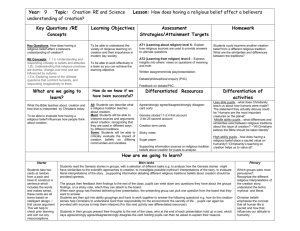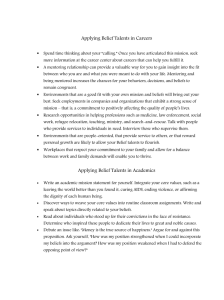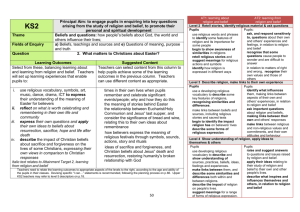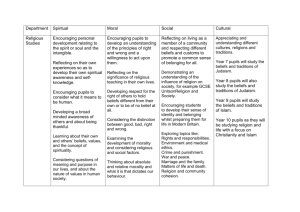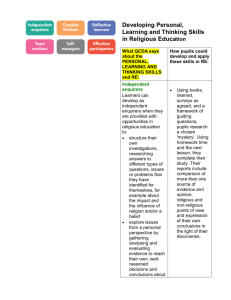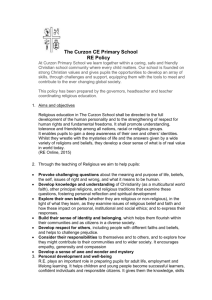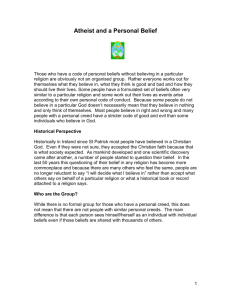RE and Science Unit Overview
advertisement
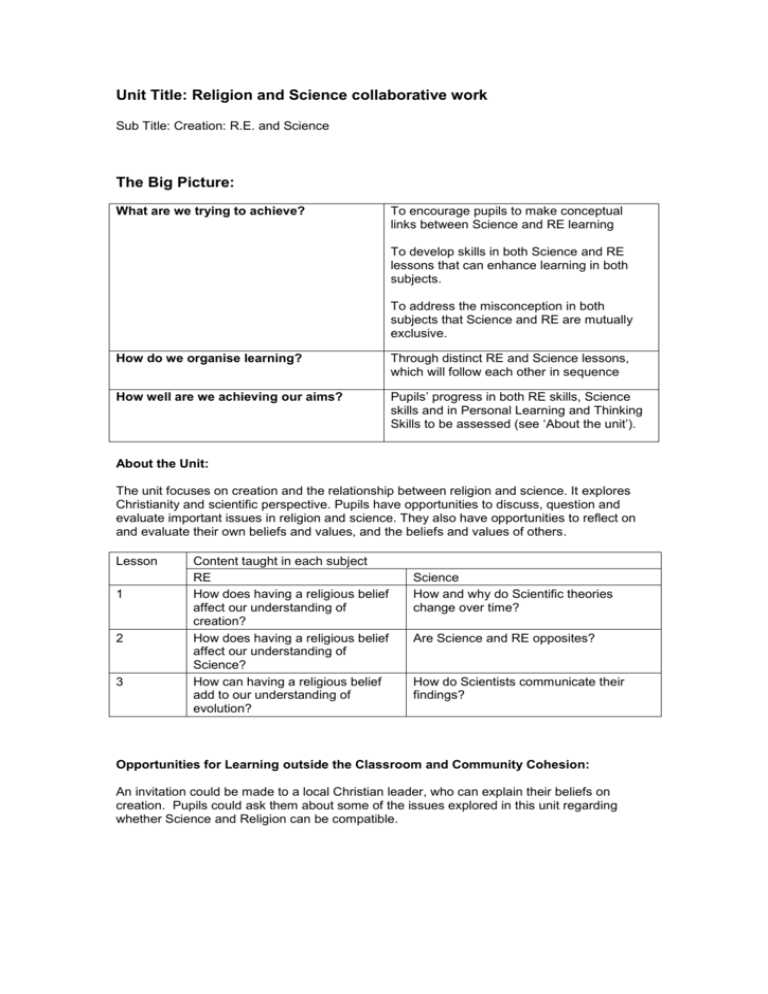
Unit Title: Religion and Science collaborative work Sub Title: Creation: R.E. and Science The Big Picture: What are we trying to achieve? To encourage pupils to make conceptual links between Science and RE learning To develop skills in both Science and RE lessons that can enhance learning in both subjects. To address the misconception in both subjects that Science and RE are mutually exclusive. How do we organise learning? Through distinct RE and Science lessons, which will follow each other in sequence How well are we achieving our aims? Pupils’ progress in both RE skills, Science skills and in Personal Learning and Thinking Skills to be assessed (see ‘About the unit’). About the Unit: The unit focuses on creation and the relationship between religion and science. It explores Christianity and scientific perspective. Pupils have opportunities to discuss, question and evaluate important issues in religion and science. They also have opportunities to reflect on and evaluate their own beliefs and values, and the beliefs and values of others. Lesson 1 2 3 Content taught in each subject RE How does having a religious belief affect our understanding of creation? How does having a religious belief affect our understanding of Science? How can having a religious belief add to our understanding of evolution? Science How and why do Scientific theories change over time? Are Science and RE opposites? How do Scientists communicate their findings? Opportunities for Learning outside the Classroom and Community Cohesion: An invitation could be made to a local Christian leader, who can explain their beliefs on creation. Pupils could ask them about some of the issues explored in this unit regarding whether Science and Religion can be compatible. Personalised Learning: A range of activities and a choice of presentation method to suit different learning styles and individual pupil strengths Learners can develop as independent enquirers when they are provided with opportunities in religious education to: • structure their own investigations, researching answers to different types of questions, issues or problems that they have identified for themselves, for example about the impact and the influence of religion and/or a belief •explore issues from a personal perspective by gathering, analysing and evaluating evidence to reach their own, well-reasoned decisions and conclusions about beliefs and values •investigate with increasing independence and apply what they have learned to develop their own answers to more complex questions.

